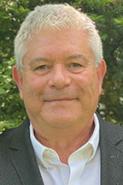Vine Characteristics for Resiliency
January 24, 2023
9:30 am - 11:15 am
Vine Characteristics for Resiliency
When considering the development of a vineyard and the appropriate choice of cultivar, grapegrowers must consider future climate changes, limited access to water and other natural resources, potential for novel and/or newly resistant diseases and pests, and challenges with labor availability and operational constraints. What grapevine traits may prove useful in mitigating these issues and what research is showing regarding our current popular cultivars and their resilience concerning future issues.
*Session receives 1.5 CEUs: Crop – Crop physiology in relation to crop management decision making
Speakers


Luis Diaz-Garcia
Organization:
University of California, Davis
Luis Diaz-Garcia received his undergraduate degree in Agronomy from Universidad Autonoma Chapingo, and his master’s degree in Plant Biotechnology from CINVESTAV-LANGEBIO. He then joined the Plant Breeding and Plant Genetics Program at the University of Wisconsin – Madison and obtained his Ph.D. in 2018.
During his Ph.D., Luis worked in cranberry genetics, genomics, and phenomics, under the supervision of Dr. Juan Zalapa. After graduating from UW Madison, Luis moved to Aguascalientes, Mexico, and occupied a position as lead scientistic at INIFAP, a Mexican agency for research in agriculture, livestock, and forestry. At INIFAP, Luis conducted genetics and genomics research on several crop species including guava, maize, and Capsicum.
Luis joined the Viticulture and Enology Department in Fall 2022 and currently leads the grapevine breeding program at UC Davis. His lab at UC Davis integrates multidisciplinary and high-scalable approaches for guiding grapevine breeding efforts and preventing future difficulties in growing high-quality grapes in the light of climate change. Research and breeding in Luis’ group are based on the needs and priorities of growers, industry, nurseries, food processors, and consumers. His lab heavily relies on industry collaborations and on building relationships with growers to better assess current and future challenges, priorities, and areas of opportunity for grapevine breeding.


Megan Bartlett
Organization:
University of California, Davis
Dr. Megan Bartlett is an Assistant Professor in the Department of Viticulture and Enology at the University of California, Davis. Her research is focused on grapevine heat and drought tolerance. Her lab uses experimental and modeling approaches to identify traits and viticultural practices to mitigate the impacts of heat and water stress on grapevine performance. Her lab also develops rapid screening methods to make it feasible to target stress tolerance traits in breeding. Megan earned her PhD on plant drought tolerance mechanisms from UCLA in 2016 and completed her postdoctoral research at Princeton University in 2019.


Elisabeth Forrestel
Organization:
University of California, Davis
Elisabeth Forrestel is an Assistant Professor at the University of California at Davis in the Department of Viticulture & Enology. She researches the ecophysiological and evolutionary basis of grapevine responses to extreme heat and drought, and how impacts of climate change on vine health and berry chemistry can be mitigated by agronomic practices.


Marc Fuchs
Organization:
Cornell University, New York
Marc was born and raised in the grape growing region of Alsace in France. He received his Master’s and PhD degrees from the University Louis Pasteur in Strasbourg.
At Cornell University his research and extension program are on viruses of vegetable and fruit crops. Marc leads multidisciplinary efforts to elucidate the interface between viruses, their insect vectors, and plant hosts to inform integrated disease management responses.


José Ramón Úrbez-Torres
Organization:
Agriculture and Agri-Food Canada
Dr. José Ramón Úrbez-Torres is a Research Scientist at the Federal Summerland Research and Development Centre in British Columbia, Canada. He serves as Adjunct Professor in the Biology Department at the University of British Columbia Okanagan Campus and as a Professional Affiliate in the Cool Climate and Oenology Viticulture Institute at Brock University in Ontario. Dr. Úrbez-Torres received a postgraduate degree in viticulture, enology and wine marketing in 2001 from the International Social Science Council and the degree of Agricultural Engineer in 2004 from the University of Valladolid in Spain. He completed a Ph.D. in Plant Pathology in 2009 at the University of California Davis. Dr. Úrbez-Torres has studied diseases of woody perennial crops since 1999 and he is internationally recognized for his research on grapevine trunk diseases, a disease complex reducing yields and limiting vineyards’ lifespan worldwide. His current research focuses on the development and implementation of sustainable management strategies against fungal, bacterial, and viral diseases of grapevines and tree fruits in Canada.
Dr. Úrbez-Torres has authored or co-authored over 60 research publications in high impact peer-reviewed journals, ten book chapters and several trade journal articles. Dr. Úrbez-Torres received the Early Scientist Career Award by the American Phytopathological Society Pacific Division in 2020.
